Public Audit Committee
Annual Report 2021-22
Introduction
This annual report covers the work of the Public Audit Committee (the Committee) between 13 May 2021 and 12 May 2022.
The Committee's audit work is focused on the scrutiny of reports produced by the Auditor General for Scotland. The Auditor General is responsible for scrutinising the expenditure and performance of directorates of the Scottish Government and most other public spending bodies (with the exception of local authorities). Through its scrutiny of the Auditor General's reports, the Committee helps to ensure public funds are spent wisely and it holds to account those who are charged with spending taxpayers' money.
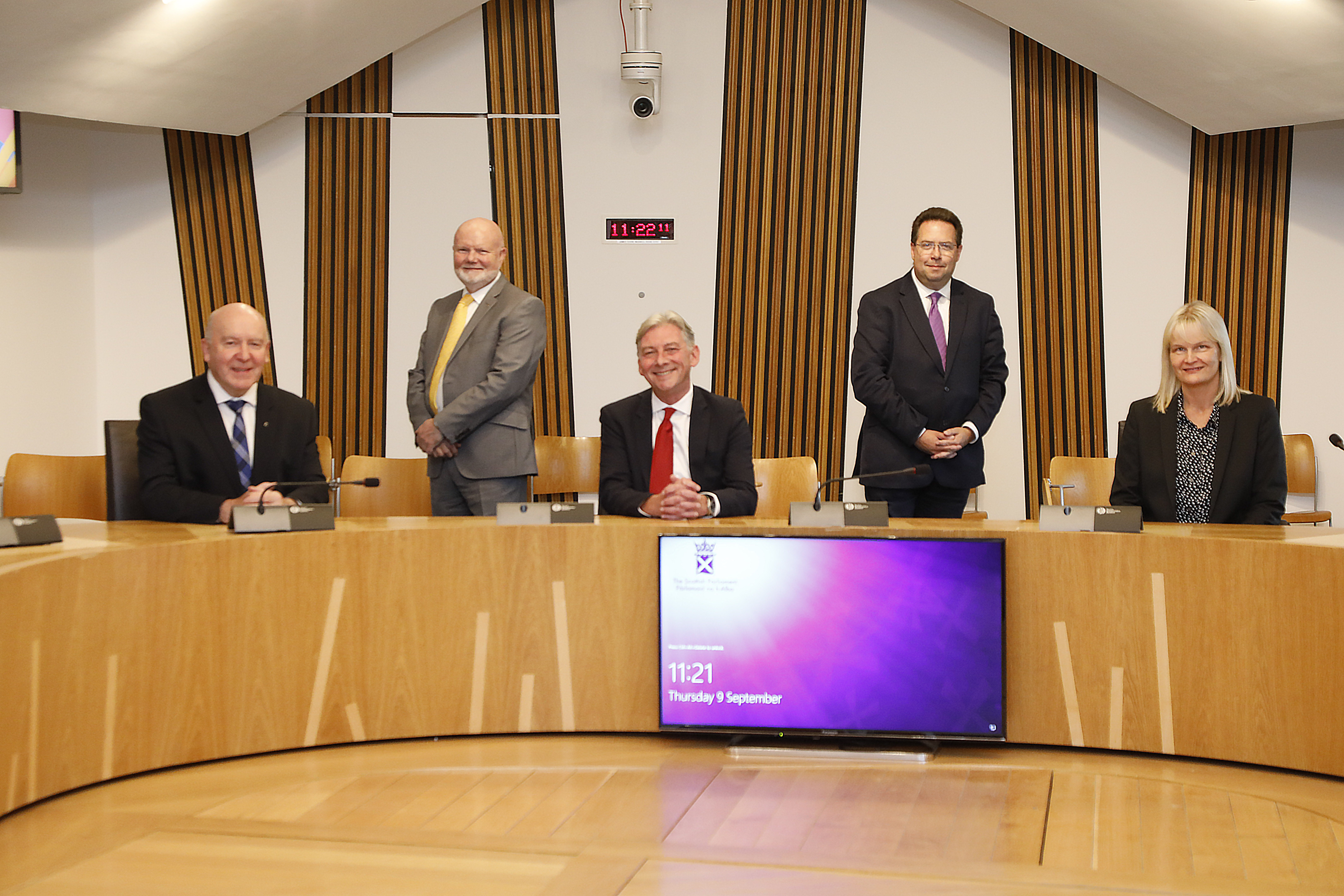
Inquiries and reports
The Committee considered fourteen reports from the Auditor General, ten of which were ‘Section 22 reports’i. These reports set out issues of concern, or interest, highlighted by the Auditor General in relation to the audit of the accounts of individual public bodies. A further four ‘Section 23 reports’ii were considered by the Committee, which examined the economy, efficiency and effectiveness of the public sector. The Committee also considered an assurance report from the Auditor General on the National Audit Office’s audit work on the Administration of the rate of Scottish income tax 2020/21.
In addition to these reports, the Auditor General has started to produce other types of audit outputs including briefings, blogs and web-based updates and analysis. These outputs enable the Auditor General to comment quickly on key and emerging issues. In the reporting year, the Committee considered eight outputs of this nature. This type of reporting has allowed the Committee to take a more reactive approach to its scrutiny of topical issues.
In addition to scrutinising reports, briefings and blogs from Audit Scotland, the Committee continues to receive reports from the Scottish Government on Major Capital Projects, Major ICT projects and settlement agreements. The Committee will consider its plans to scrutinise these reports in the new reporting year.
A full list of reports and other outputs considered by the Committee during the reporting year is as follows:
Section 22 reports
The 2020/21 audit of the Crofting Commission
The 2020/21 audit of NHS National Services Scotland: Response to the Covid-19 pandemic
The 2020/21 audit of National Records of Scotland
The 2020/21 audit of The 2020/21 audit of Bòrd na Gàidhlig
The 2020/21 audit of NHS Highland
The 2020/21 audit of Scottish Government Consolidated Accounts
The 2020/21 audit of the Commissioner for Ethical Standards in Public Life in Scotland
The 2020/21 audit of the Scottish Environment Protection Agency
The 2020/21 audit of Scottish Canals
The 2020/21 audit of South Lanarkshire College
Section 23 reports
Improving the outcomes of children and young people through school education
Planning for Skills
NHS in Scotland 2021
New Vessels for the Clyde and Hebrides: Arrangements to deliver vessels 801 and 802
Other audit outputs
Scotland's colleges 2020
Community Justice: Sustainable alternatives to custody
Child and Adolescent Mental Health Services
Covid-19: Vaccination programme
Covid-19: Personal protective equipment
Community empowerment: Covid-19 update
Social Care Briefing
Drug and Alcohol Services: An update
Administration of the rate of Scottish income tax 2020/21
The Comptroller and Auditor General's report on the Administration of Scottish income tax 2020/21
The Auditor General for Scotland's report on Administration of Scottish income tax 2020/21
Committee reports
The Committee published one report in the reporting year:
The 2020/21 audit of the Crofting Commission1
Further information on the Committee's work on this report can be found below at paragraph 8.
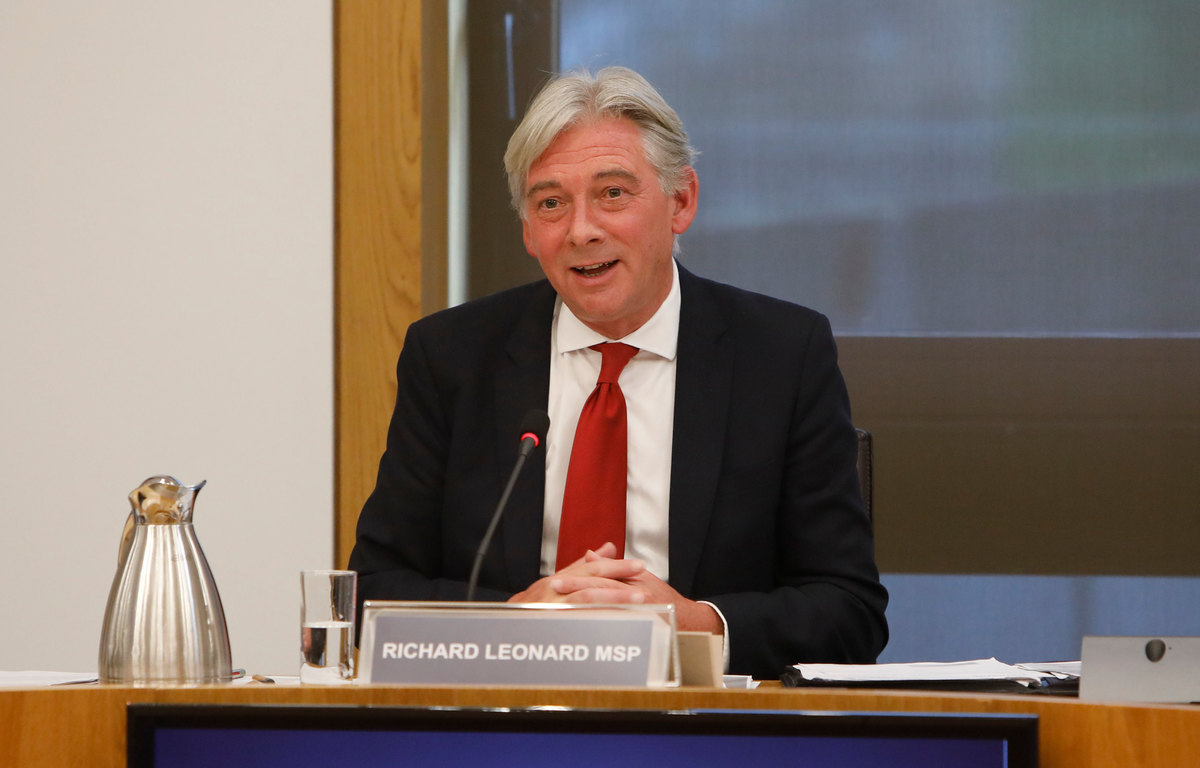
Audit work
The 2020/21 audit of the Crofting Commission
The Committee took evidence from the Auditor General on 4 November 2021 on the section 22 report on the Crofting Commission. This report highlighted issues of governance which had led to a breakdown of trust between the Board and Senior Management. On 2 December 2021,1the Committee took evidence from the Chief Executive and Convener of the Crofting Commission, followed by evidence from the Portfolio Accountable Officer from the Scottish Government on 16 December 2021.2The Committee published a report highlighting its findings and concluded that effective leadership is critical to the high quality of public services for public bodies and that the weaknesses revealed in the report were unacceptable.3 The Committee welcomed the Auditor General's intention to continue to monitor the situation and will consider the Scottish Government's response to its report in the new reporting year.
The 2020/21 audit of National Records of Scotland
The section 22 report highlighted the expected additional costs of around £21.6 million as a result of delaying the census in Scotland by a year. The Committee took evidence from the Auditor General on 9 December 20211 and from the National Records of Scotland on 20 January 20222. The Chief Executive gave assurances that a high quality census would be delivered in 2022, despite the delay and increased costs. Following the oral evidence sessions, the Committee wrote to the National Records of Scotland seeking additional information on the financial impact of the delay to the census, whether the delay may impact on the delivery of future services and whether the National Records of Scotland had held discussions with Scottish organisations with a view to accessing relevant administrative data.3 The Committee agreed to wait until Autumn 2022 to continue its scrutiny of the report.
The 2020/21 audit of Scottish Government Consolidated Accounts
The Committee took evidence on this section 22 report from the Auditor General on 27 January 20221. This was followed by an evidence session on 24 February 20222 with the new Permanent Secretary at the Scottish Government, in his first appearance at the Scottish Parliament since taking up his appointment. The Permanent Secretary provided the Committee with further information in writing to clarify issues such as the impact on services by the overspend by the Crown Office and Procurator Fiscal Service, the costs involved in the Lochaber Aluminium Smelter deal and the recovery of fraud and payments made in error from the Covid-19 business support schemes set up during the pandemic. The Permanent Secretary also acknowledged the need to improve the accessibility of public spending information.3 The Committee will continue its scrutiny of the report in the new reporting year.
The 2020/21 audit of the Scottish Environment Protection Agency
The Auditor General's section 22 report highlighted the cyber-attack on the Scottish Environment Protection Agency (SEPA) and the subsequent loss of data. The Committee took evidence from the Auditor General on 10 February 20221, followed by SEPA and the Scottish Government on 17 March 20222. The Committee sought further assurances from SEPA on the robustness of the back-up processes it now has in place. It also sought further information from the Scottish Government on how it had shared the lessons learned from the cyber-attack with the wider public sector.34 Again, the Committee will continue its scrutiny of the report in the new reporting year.
The 2020/21 audit of Scottish Canals
The section 22 report by the Auditor General stated that the auditor had issued a disclaimer on the audit opinion on Scottish Canals' accounts on the basis of concerns around the valuation of the canals infrastructure and waterways, and the fact that a valuation had not been obtained for around £51 million of specialist operational assets. The Committee took evidence from the Auditor General on 24 February 20221, followed by Scottish Canals and Transport Scotland on 24 March 20222. The Committee wrote to Scottish Canals, Transport Scotland and the Office for National Statistics to gather further information to assist its scrutiny of the audit report.345 The Committee will consider these responses in the new reporting year.
NHS in Scotland 2021
The Auditor General's annual overview report on the NHS in Scotland 2021 reflected the success of the Covid-19 vaccination programme. However, it also highlighted the backlog facing NHS Scotland and the urgent need for reform. The Committee took evidence from the Auditor General on 17 March 20221 and agreed to write to the Scottish Government on issues raised during the meeting. These issues included how the Scottish Government will secure sustainability for the NHS as it is reformed, succession planning for NHS Leadership, the strategy to tackle the backlog for diagnosis and treatment and how the current lack of data in relation to GP appointments can be improved.2 The Committee will continue to scrutinise the issues raised in the report and the evolving situation in NHS Scotland and will consider the response it has received from the Scottish Government in the new reporting year.
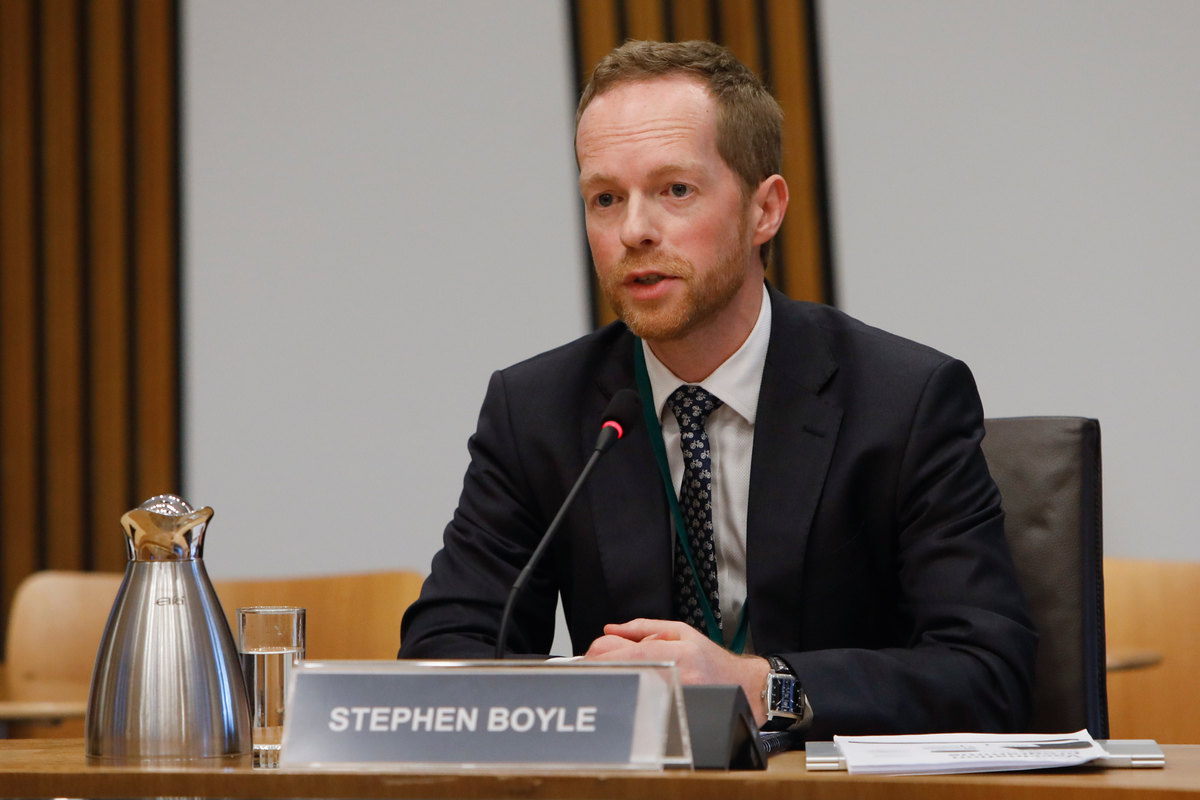
New Vessels for the Clyde and Hebrides: Arrangements to deliver vessels 801 and 802
On 23 March 2022, the Auditor General published a section 23 report on New Vessels for the Clyde and Hebrides: Arrangements to deliver vessels 801 and 802. The report describes the complex arrangements that were put in place to build these two ferries, which are currently nearly four years late and two and a half times over the original budget. The Committee took evidence for the Auditor General on 21 April 20221 and again the following week on the 28 April 20222. The Committee will continue its scrutiny of this report in the new reporting year.
Covid-19 audit related work
Community empowerment: Covid-19 update
The Auditor General's update briefing shared good examples of the community response to the pandemic and summarised the learning that had taken place. The Committee took evidence from community groups and representatives from voluntary organisations on the 25 November 20211, in a hybrid round table session. This session highlighted some of the issues and also the successes around community empowerment. This led the Committee to write to the Local Government, Planning and Housing Committee on the issues raised, to help inform its post-legislative scrutiny of Part 2 of the Community Empowerment (Scotland) Act 2015.2 The Committee also wrote to the Scottish Government to ask how it is supporting public bodies fulfil their community empowerment obligations and how it will ensure that lessons are learned across the public sector to develop longer term approaches to empowering communities.34The Committee closed its scrutiny of the report on 3 February 2022.
The 2020/21 audit of NHS National Services Scotland: Response to the Covid-19 pandemic; and Covid 19: Personal protective equipment
The Committee took evidence on the section 22 report on the NHS National Services Scotland's (NHS NSS) response to the Covid-19 pandemic and combined its scrutiny of the report with its scrutiny of an Audit Scotland briefing paper on Covid-19: Personal protective equipment (PPE). Following evidence from the Auditor General on 4 November 20211. The Committee took further evidence from NHS NSS and the Scottish Government on 2 December 20212. This session prompted the Committee to write to the Health, Social Care and Sport Committee to draw its attention to issues such as the need to keep emergency procurement procedures and the environmental impact of PPE under review. The Committee also highlighted the significant achievement of NHS NSS, the Scottish Government and Scottish Enterprise in creating Scottish supply chain for PPE.3 However, the Committee also recognised that there may be outstanding issues around the long-term planning, procurement and supply of personal protective equipment and agreed to possibly return to this in future.
Covid-19: Vaccinations programme
On 28 October 20211 the Committee took evidence from the Auditor General and heard that excellent progress had been made in implementing the vaccine programme, and that NHS Boards and the Scottish Government had reacted quickly to an evolving situation. The Committee also heard they had responded well to new clinical advice to help plan future stages of the vaccine programme. The report also highlighted that although non-attendance had risen in recent months, and that uptake of the vaccine was lower in some groups of the population, the proportion of wasted vaccines remained low. The Committee wrote to the Scottish Government to ask why the findings from Public Health Scotland's November 2020 health inequalities impact assessment on an extended flu and Covid-19 vaccination programme had not been made public2. The Scottish Government subsequently provided a link to the published assessment and reaffirmed its commitment that the programme was a priority3. The Committee closed its scrutiny of the report on 3 February 2022.
Meetings, equalities and engagement
Meetings
Despite the Covid-19 pandemic, the Committee continued to meet weekly, either in person or in a hybrid or virtual format as required, following the relevant public health guidance in place.
The Committee met twenty eight times in this Parliamentary year. Twenty six meetings were held in public and partly in private. Two meetings were held wholly in private to discuss the Committee's work programme. No meetings were held wholly in public. The purpose of the majority of private items was for the Committee to consider evidence that had been heard, a draft report, its future approach to specific audit reports or to consider its future work programme.
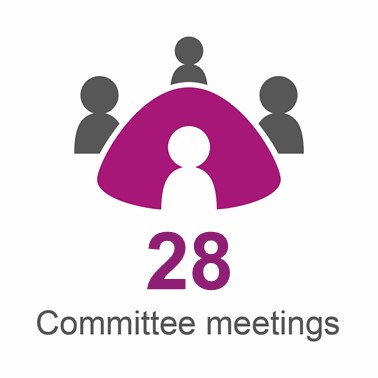
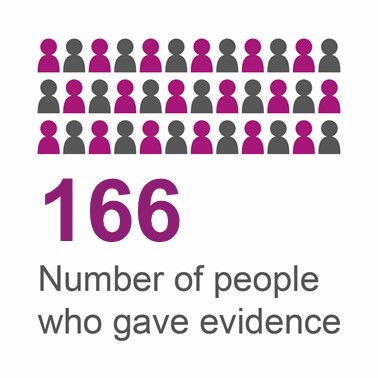
Equalities and engagement
The Committee continued to consider the importance of data collection during the reporting year to help address inequalities as it scrutinised reports from the Auditor General such as "Improving outcomes for children and young people through school education" and Community justice: Sustainable alternatives to custody".
The Committee welcomed the commitment of the Auditor General to continue to undertake audit work in relation to inequalities as part of his future work programme.
The Committee demonstrated its commitment to equalities and engagement by publishing Gaelic translated Official Reports as part of its scrutiny of the 2020/21 audit of Bòrd na Gàidhlig. It also used the Scottish Parliament's Gaelic twitter account to engage with the Gaelic speaking community on this audit report.
The Committee's own twitter account now has 2,435 followers, an increase of 335 since its predecessor Committee's last annual report at the end of Session 5. The Committee continued to post tweets to share information on its work. In April 2022, the Convener provided a short video update highlighting recent work undertaken by the Committee and some of its forthcoming work. The Committee will continue to seek ways to promote its work through twitter.